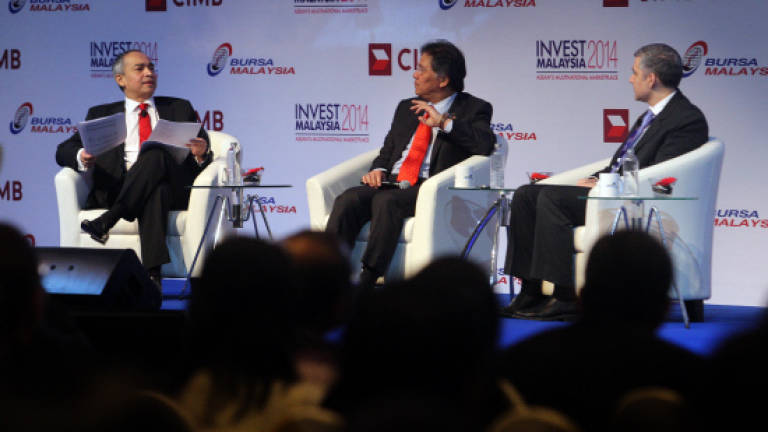Malaysia should focus on openness, fiscal sustainability

KUALA LUMPUR: The Malaysian government should continue being open and focus on fiscal sustainability in order to maintain its competitive economy, said World Bank senior country economist for Malaysia Frederico Gil Sander.
He said Malaysia's economy is currently very competitive and highlighted the two areas which he hopes the government will continue to focus on.
"In the last three years, one has seen a lot more openness…one example is the ease of getting construction permits," he said during the plenary session at Invest Malaysia 2014 yesterday.
Sander said obtaining construction permits was not very convenient previously but the government set up a task force called Pemudah to improve it and in the World Bank's Doing Business 2014 report, Malaysia's ranking rose from 96 to 43 in terms of dealing with construction permits.
He said the government-linked companies (GLC) transformation programme has also been "quite remarkable" as many Malaysian GLCs have emerged as regional champions, giving the example of CIMB Group. Sander also said that the liberalisation of the services sector has also resulted in Malaysia being much more open, which is needed to be competitive globally.
On fiscal sustainability, Sander said the implementation of the Goods and Services Tax (GST) is an important initiative as it would help reduce the country's dependence on oil revenues.
"Things like increasing prices and taxes are important for the long term," he said.
Performance Management and Delivery Unit (Pemandu) CEO and Minister in the Prime Minister's Department Datuk Seri Idris Jala said the country has reduced its dependence on oil and gas (O&G) revenue since 2009.
In his presentation titled 'Malaysia's Growth Dynamics', he said O&G contributed 40.32% to revenue in 2009, decreasing gradually to 33.72% in 2012 and an estimated 30.63% in 2013. This year, it is forecasted to decrease further to 28.96%.
Idris said he is confident that Malaysia will achieve its 2020 goals but is concerned about the economy after that.
"I believe Malaysia can achieve 2020 but what I'm worried about is Malaysia post-2020 after it becomes a high-income nation. To maintain that status, there must be high net trade but our net trade is still small, at 7% to 8% today," he said.
In order to increase the net trade, Idris said, Malaysian companies need to think beyond Malaysian shores and he urged GLCs to expand overseas to avoid crowding out smaller local companies and make room for them to grow locally.
"The domestic market is a starting point but overseas is where the big players should be," he added.